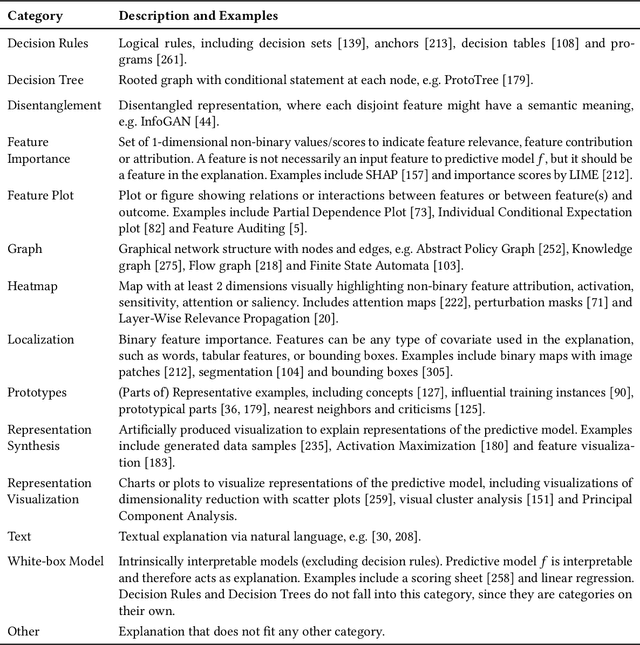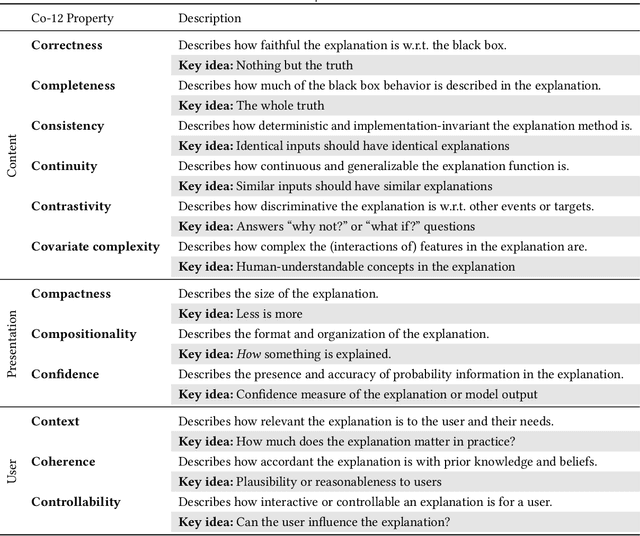Michelle Peters
From Anecdotal Evidence to Quantitative Evaluation Methods: A Systematic Review on Evaluating Explainable AI
Jan 20, 2022



Abstract:The rising popularity of explainable artificial intelligence (XAI) to understand high-performing black boxes, also raised the question of how to evaluate explanations of machine learning (ML) models. While interpretability and explainability are often presented as a subjectively validated binary property, we consider it a multi-faceted concept. We identify 12 conceptual properties, such as Compactness and Correctness, that should be evaluated for comprehensively assessing the quality of an explanation. Our so-called Co-12 properties serve as categorization scheme for systematically reviewing the evaluation practice of more than 300 papers published in the last 7 years at major AI and ML conferences that introduce an XAI method. We find that 1 in 3 papers evaluate exclusively with anecdotal evidence, and 1 in 5 papers evaluate with users. We also contribute to the call for objective, quantifiable evaluation methods by presenting an extensive overview of quantitative XAI evaluation methods. This systematic collection of evaluation methods provides researchers and practitioners with concrete tools to thoroughly validate, benchmark and compare new and existing XAI methods. This also opens up opportunities to include quantitative metrics as optimization criteria during model training in order to optimize for accuracy and interpretability simultaneously.
 Add to Chrome
Add to Chrome Add to Firefox
Add to Firefox Add to Edge
Add to Edge